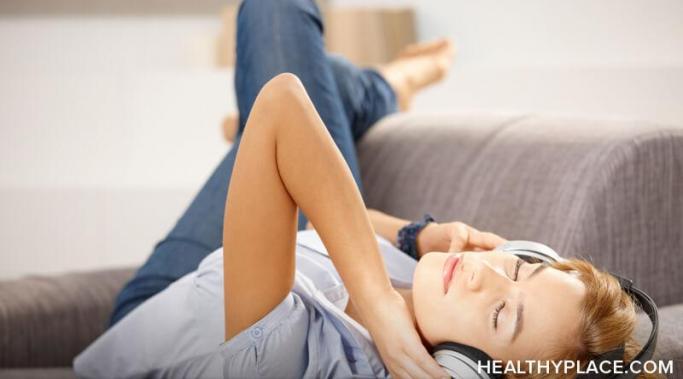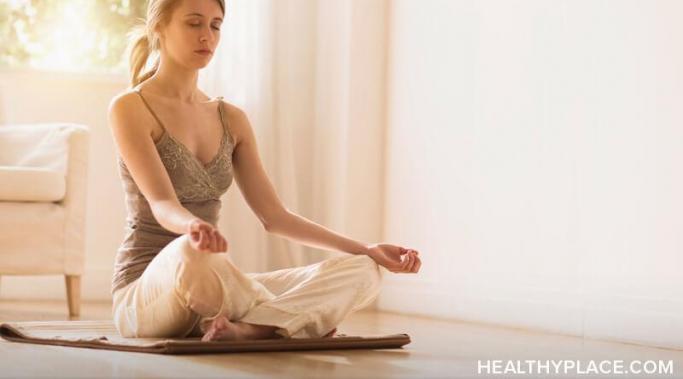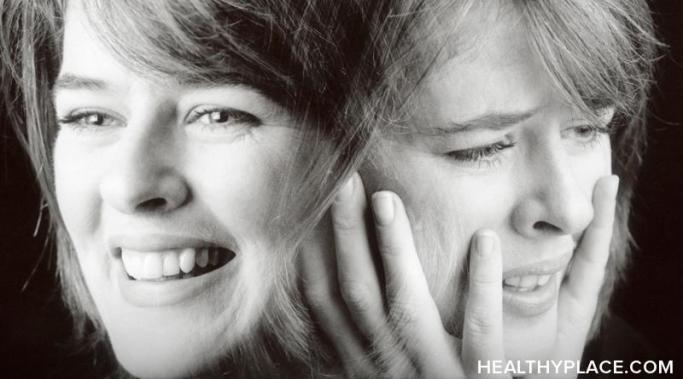Blogs
This will be my final post of 2020. Not only are we heading into a new year, but I am due to give birth in just over a week, and I'll be taking a few weeks after that to settle into our new routine as a family of four (and I'm using the word "routine" very loosely). So, with that in mind, I thought I would use this week's blog post to reflect on what I've learned in 2020, and more specifically, what I've learned since joining the HealthyPlace community.
It can be extremely effective to deal with anxiety from the inside out even though anxiety is often caused--or exacerbated--by forces outside of us. That's because even if the cause of our anxiety is external, our reaction is internal and involves our entire mind (thoughts and feelings), brain (the physical organ and its structures and activities), and body (every part of our body is impacted by and can affect our anxiety). To help you reduce anxiety from deep within so you can calmly respond to stressors without, I offer you a mindfulness activity as well as information about why it works and when to do it.
As someone who wants to build self-esteem and has strong professional skills, I often found myself in a leadership role, managing others in the workplace. In addition, as many of us do, there have been times I've needed to hire help around the house, putting me in a management position at home. As recently as last week, I've had to examine my management style to be sure my decisions were based on facts and not just a way to get around low self-esteem.
Social media can negatively impact your mental health. You don't need dozens of studies to tell you that;1 you've seen it in your own life. But it can also be a force for good. You've seen that too (otherwise you wouldn't still use it). The question is: how can you find a balance? I've put together a list of Dos and Don'ts to promote a positive relationship between social media and your mental health.
If you ever see me in real life, I will almost always have a pair of headphones because they reduce my anxiety. If they’re not in my ears, they’ll be hanging around my neck just in case I need to put them in. I started this in high school after I got my first iPod, and I’ve continued it to the present day unceasingly. For me, it’s the best way I can control my anxiety. I want to talk about why that is the case.
Many of us know about meditation videos to help clear our minds, but have you heard of autonomous sensory meridian response (ASMR) for mental health? Unlike meditation, ASMR creates tingling sensations that travel down the body, giving people a warm and pleasant feeling. The tingling sensations are caused by whispers and sound effects from hypnotic speakers. Although ASMR might seem like a strange coping technique for mood disorders, there are many benefits. Continue reading this post to learn more.
Recently, my therapist suggested that I look into how to use emotional freedom technique (EFT) tapping in recovery to see if it was something I might be interested in trying. Now, it's one of my favorite coping techniques and I think it's going to make a big difference in my trauma work. If you haven't heard of EFT tapping, it involves tapping on specific points while speaking phrases of acceptance.
A critical aspect of living with dissociative identity disorder (DID) and all your moving parts is having multiple personalities to manage on a regular basis. These personalities often vary in age and appearance, and they typically have traits that make them unique in the eye of the individual living with DID. Taking care of parts is essential to managing DID on a daily basis, but what happens when their needs are not met?
Relationships are challenging at the best of times, but when you're dating someone in eating disorder recovery, they can be even more so. After all, eating disorder recovery is a time when people should be focused on building a healthy relationship with themselves. Throwing another person into the mix complicates an already complicated situation.
So much is being said these days about self-love as the opposite of self-harm. We often read about practicing kindness towards our bodies, spoiling ourselves with nice things, or repeating positive affirmations. Even I said so in one of my articles. But the thing about loving ourselves is that it’s not an overnight process. It requires a lot of work, and sometimes it’s hard to love yourself if you don’t even like yourself. So is self-love the realistic opposite of self-harm?









